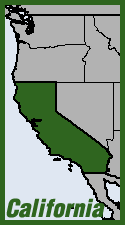 An overwhelming 63% of Los Angeles voters passed Measure D on May 21, bringing long-awaited regulations to the city's medical marijuana dispensaries. Measure D, which was placed on the ballot earlier this year by the Los Angeles City Council, will provide "limited immunity" to more than a hundred dispensaries currently operating in the city. Voters approved a set of regulations yesterday that would permit the operation of certain dispensaries registered with the city since September 2007, as long as they comply with certain city-imposed requirements.
An overwhelming 63% of Los Angeles voters passed Measure D on May 21, bringing long-awaited regulations to the city's medical marijuana dispensaries. Measure D, which was placed on the ballot earlier this year by the Los Angeles City Council, will provide "limited immunity" to more than a hundred dispensaries currently operating in the city. Voters approved a set of regulations yesterday that would permit the operation of certain dispensaries registered with the city since September 2007, as long as they comply with certain city-imposed requirements.
"At long last, after more than seven years of trying to establish reasonable regulations for medical marijuana dispensaries in Los Angeles, patients can now expect safe and legal access to their medication," said Don Duncan, California Director with Americans for Safe Access (ASA), the country's leading medical marijuana advocacy group. "Yesterday's vote, however, does not entitle the city to aggressively shut down disqualified dispensaries using criminal enforcement," continued Duncan. "The city should allow dispensaries to voluntarily comply with the new law and rely on civil enforcement only if necessary."
The regulations in Measure D, which closely mirror those sought by many patients advocates and other industry stakeholders, require dispensaries to: operate as a nonprofit, pay local taxes, and locate at least 600 feet from public parks, libraries, youth centers, drug abuse or treatment facilities, places of worship, or other medical marijuana businesses. Measure D also raises the local tax rate on the sale of medical marijuana from 5 to 6 percent.
Patients have been fighting for years to establish reasonable regulations for dispensaries in Los Angeles. After imposing a moratorium on new dispensaries in September 2007, the city dragged its feet on developing regulations and failed to enforce its moratorium, resulting in a proliferation of hundreds of new dispensaries over the years. In early 2010, after passing an ordinance so restrictive advocates said it amounted to a de facto ban, the city was forced to endure dozens of lawsuits. Last July, the Los Angeles City Council voted to ban dispensaries outright, but after patient advocates successfully qualified a local initiative for the March ballot aimed at repealing the ban, the city capitulated and voted to rescind.
The Coalition to Protect Patients & Neighborhoods -- including ASA, the United Food and Commercial Workers (UFCW) Local 770, and other industry stakeholders -- campaigned to get Measure E on the ballot, but abandoned the initiative after the city qualified Measure D, a nearly identical measure with the exception of the local tax increase. Measure F, which would have allowed for an unlimited number of dispensaries, failed to gain enough votes to pass. "This is a significant step in the right direction," said Duncan. "However, it's very likely that the city will have to evaluate whether the number of regulated dispensaries is sufficient to meet patient demand and, if not, it will be up to the city to address that problem."
The passage of Measure D comes less than a month after the California Supreme Court gave local governments the discretion of whether or not to adopt dispensary regulations. Since 2003, when the California legislature passed the Medical Marijuana Program Act, more than 50 localities have adopted regulations similar to those in Measure D. Advocates applaud yesterday's move by Los Angeles voters as a much wiser use of discretion than banning dispensaries outright. (ASA, May 11)







Comments
DEA raids four LA dispensaries
Four Los Angeles medical marijuana dispensaries were raided on March 11 by the DEA and LAPD. The joint operation raided the Black Rose dispensary in Fairfax, Downtown Medical Caregivers off Main Street, Western Medical Group in Harvard Heights and Herbman in Exposition Park. Two homes in Beverly Hills were also raided, and authorities seized an unspecified amount of cash and cannabis along with a handgun, according to the DEA. An unidentified male allegedly owns all four dispensaries, although no arrests were made.
The raids occurred one day after City Attorney Mike Feuer announced a crackdown on dispensaries now designated as illegal after last year's passage of Proposition D, which banned all but 135 dispensaries—those that registered with the city prior to a 2007 moratorium.
Feuer confirmed the city has shut down approximately 100 dispensaries since it began enforcing the new restrictions. However, hundreds of dispensaries that Prop D officially outlawed remain in operation, and new medicinal pot shops reportedly continue to open weekly around LA. (High Times, March 14)